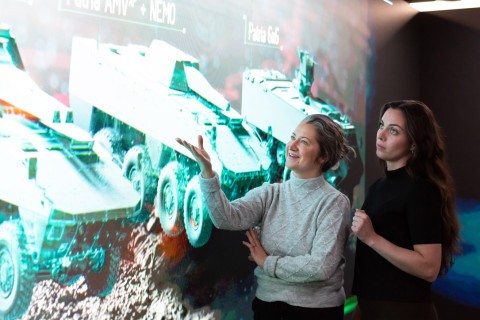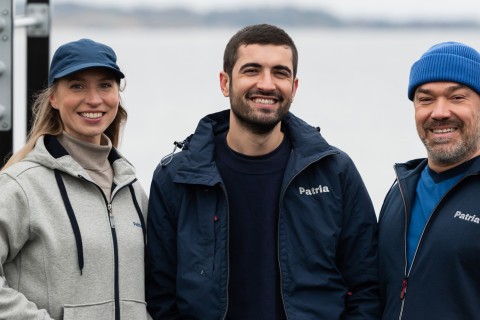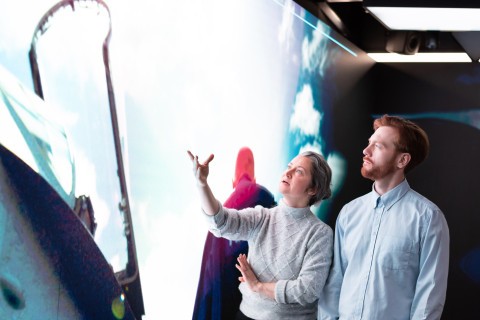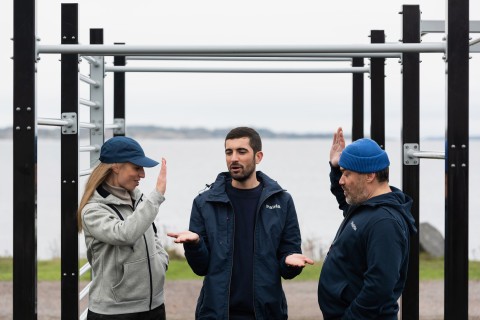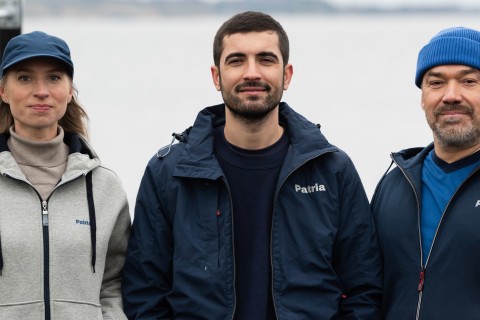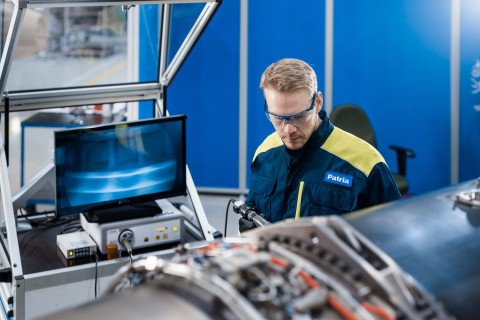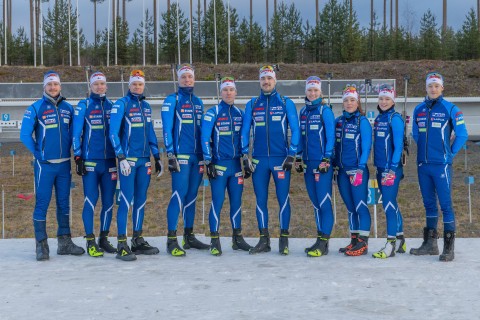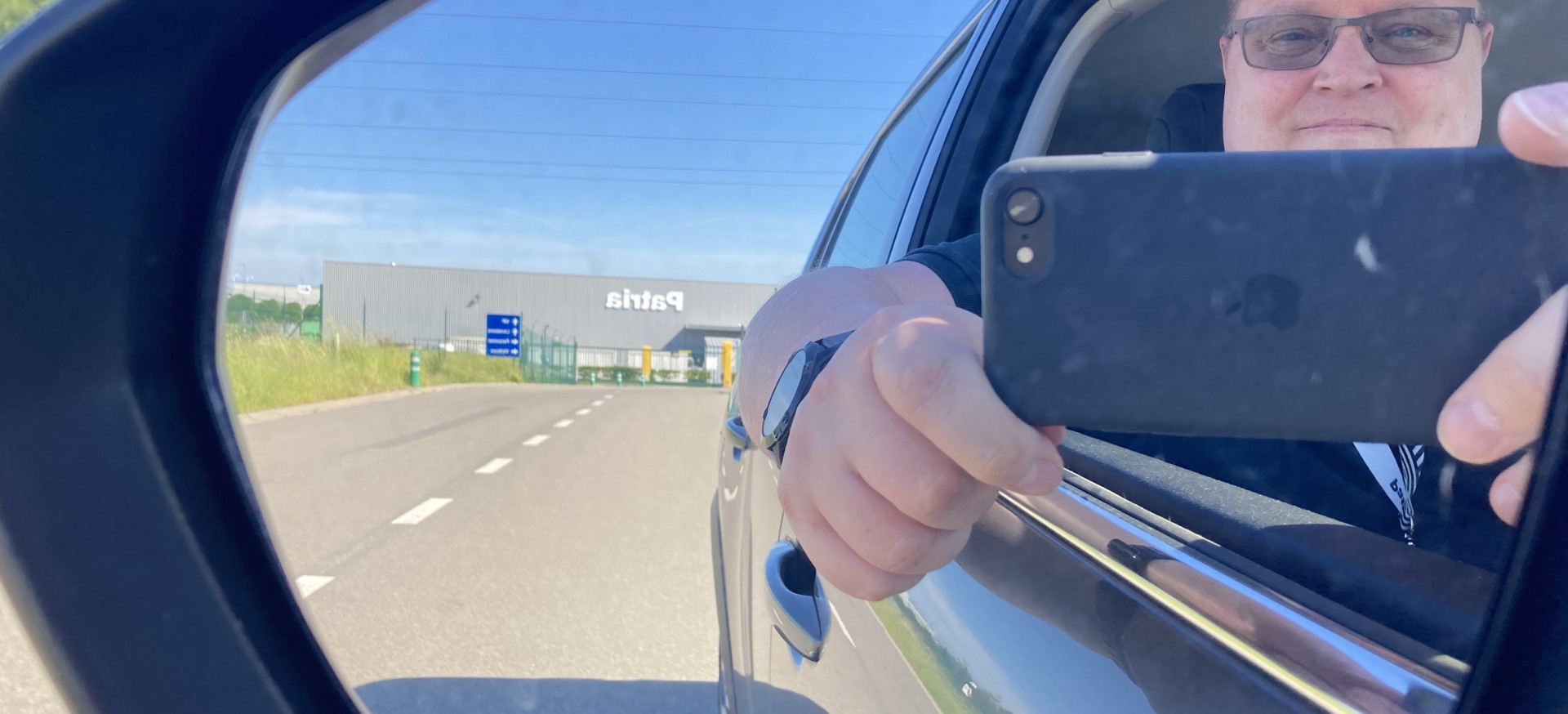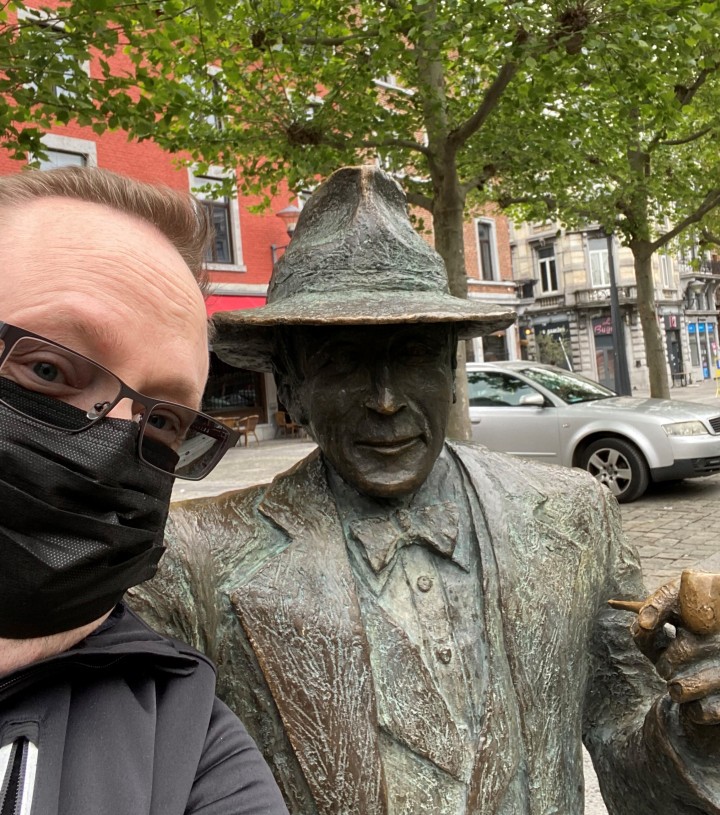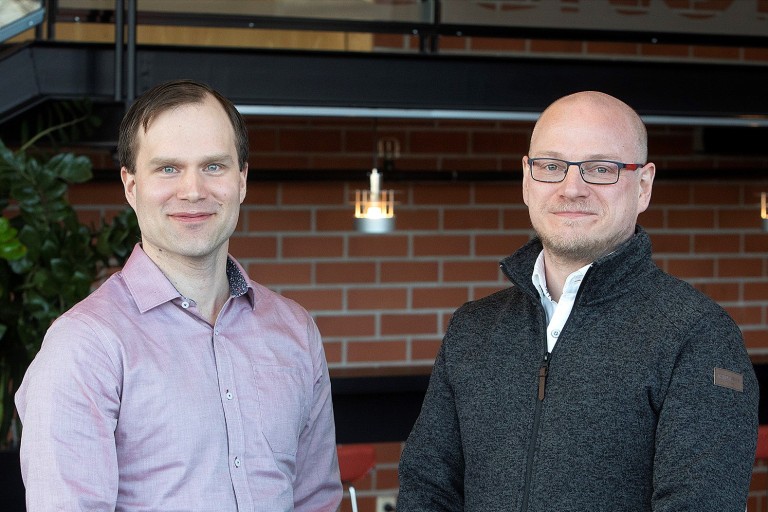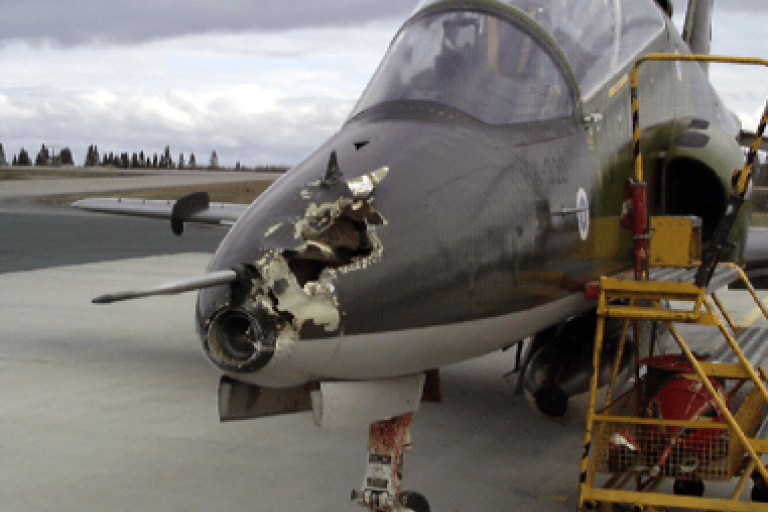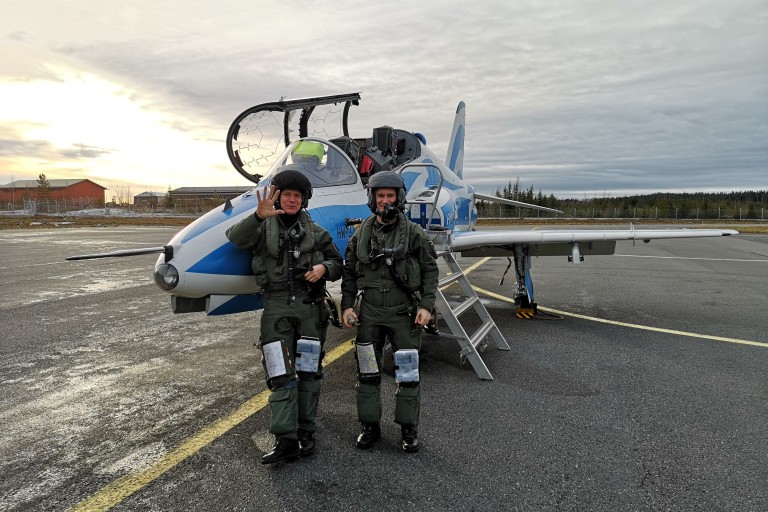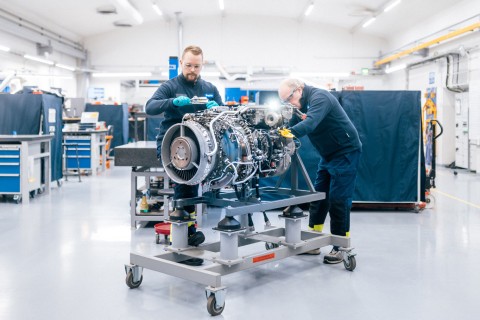
17.6.2021
A one-year posting to Patria's maintenance unit in Belgium has been an educational experience for Teemu Virtanen. The most rewarding aspects are cooperation and working in a different kind of corporate culture.
Text: Matti Remes Photos: Teemu Virtanen
Teemu Virtanen, Patria's ICT Service Manager, started a one-year posting at Patria’s maintenance unit in Belgium in October last year. Serving as Technical Project Manager, he is responsible for an integration project in which Patria Belgium Engine Center (PBEC) is switching over to Patria’s IT services while phasing out the services of its previous owner.
“In practice, this integration involves setting up a Patria network and equipment in Belgium. Some of this work has already been completed. We’ve also brought in and deployed Patria workstations, printers and the necessary software. In addition, we’re transferring PBEC’s data to Patria’s platform.
“In other words, we’re creating and deploying a full IT palette, complete with services,” says Virtanen.
PBEC – which Patria acquired in 2019 – has long been responsible for maintenance, repair and overhaul services for the Pratt & Whitney F100 engines of F-16 and F-15 fighters.
“As a workplace, PBEC is quite a bit different from what I’ve been used to. The closest point of comparison at Patria is probably the Linnavuori engine unit in Nokia,” says Virtanen, who previously worked at Patria’s location in Tampere.
Welcomed by an international work community
This has been a hectic year for Virtanen, as he also handles his existing job duties in Finland over and above the Belgian project. In Patria's ICT management he heads up tasks such as terminal device services, which cover the telephones and computers Patria employees use on the job.
Virtanen says that the most rewarding aspect of a foreign posting is getting to know a different kind of corporate culture.
“As a workplace, PBEC is pretty international. Many of the people working here are not originally from Belgium – I also have colleagues from other countries like France and Italy. French is the most commonly spoken language, although you can get by in English at work.”
Virtanen says that he was warmly welcomed and fits in well with the team. If he finds something puzzling, his friendly colleagues always have time for a chat.
“Teams are important in Belgium, too. Everyone pulls together here – the importance of teamwork can never be overemphasised.”
Working together produces good results
Virtanen believes that the international work community gets results through effective cooperation and highlighting the good aspects of different work cultures. The IT project he is heading up contributes to enhancing cooperation, as PBEC will adopt the same systems and tools that are used elsewhere in Patria.
“You can harmonise cultures by providing reliable and intuitive services to all users, regardless of their role. First you must provide guidance to the users. At the same time, you have to ensure that the services are always developed and kept up to date.”
A foreign posting broadens your worldview
Virtanen says that PBEC has handled the IT changeover with flying colours. However, the coronavirus pandemic has caused some grey hairs during project implementation.
“Almost all of the visits required by experts were delayed and needed special arrangements. Yet we still managed to get everything sorted out somehow, even though many things took longer than planned.”
Furthermore, the processing of official approvals has taken longer than expected, and this has also led to small delays. These approvals must be secured before the Group’s ICT management can serve and provide full services for Belgium.
“The necessary approvals are on their way so that we can complete the integration project.”
Virtanen’s posting in Belgium will be over at the end of September. He recommends that anyone who has the opportunity to gain international work experience should go for it.
“For me, this has been an educational experience that has broadened my worldview. Our entire organisation will learn from this, too – the lessons we’ve gained here can be harnessed in IT services and HR, for instance. Going forward, this will make it even easier for others to go on foreign postings.”
What did you like about the article?
Thank you for your opinion! You can share the article on social media using the buttons below:


